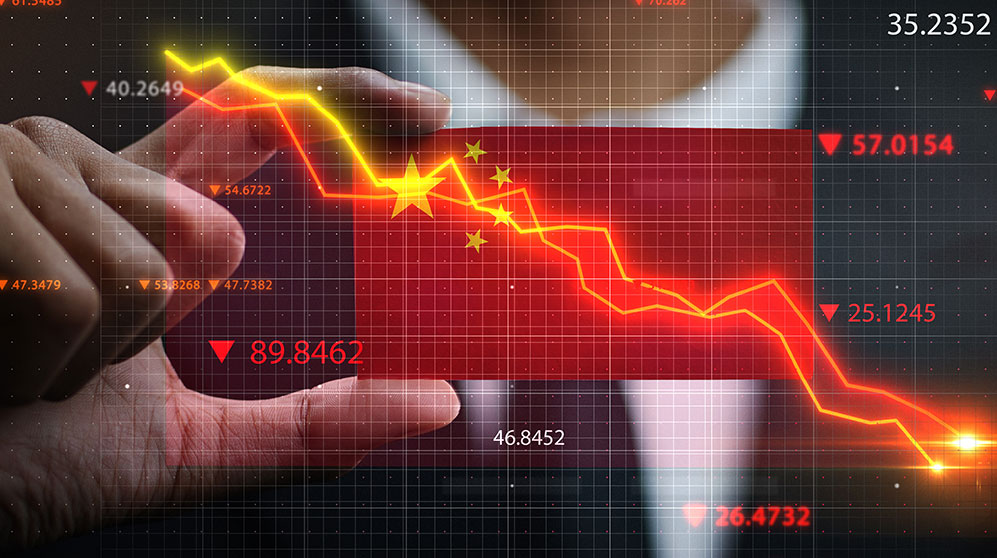Has China’s ‘Economic Miracle’ Hit a Great Wall?
• 3 min read
- Brief: Global Economy

Get the latest in Research & Insights
Sign up to receive a weekly email summary of new articles posted to AMG Research & Insights.

China’s rapid shift from an agrarian to industrialized society is in a lull, and investors would be wise to examine the extraordinary challenges the nation faces in the coming year and beyond.
The problems are numerous:
- The COVID-19 pandemic and China’s response—a recently lifted zero-tolerance policy to outbreaks forcing lockdowns of cities and entire regions—has hamstrung the nation’s economic growth, which had averaged more than 9% for decades before sinking to just 3.9% last quarter.
- Supply chain snarls related to China’s lockdowns and Russia’s invasion of Ukraine, as well as authoritarian regimes’ use of commodities as bargaining chips, have left the developed world rethinking past globalization efforts. With 20% of its GDP reliant on exports, China can ill-afford cuts in global trade.
- Real estate, contributing to about 30% of China’s growth, is undergoing massive deleveraging, mainly in the household sector. Decades of heavy investment in infrastructure, which China used to reach growth targets, has begun to fall. Returns on these projects—which in the past easily eclipsed the overarching cost—now become less economically feasible and attractive.
All of this leaves the Celestial Empire at a crossroads.
Even without major policy changes, China can probably manage an economic deceleration to a much lower level of growth. A new sustainable high-growth model is unlikely to emerge until China’s ruling Communist Party relinquishes more control of the economy—a tough ask considering President Xi Jinping just consolidated his authoritarian power.
But why does any of this matter to investors?
In the past, America was the mother-bird of economies, where a recession here rippled around the world. Now, that goes for China, too. When it catches a cold, the world sneezes.
Resource-rich developing countries have become dependent on China, which is the world’s largest importer of natural resources. At the same time, China is the globe’s largest exporter of goods, giving it massive influence on all trade.
On a more micro scale, Chinese economic health contributes greatly to the health and profitability of American companies. Roughly 29% of sales for Fortune 500 companies are abroad, with China contributing heavily to that allocation. Further, cheap labor and materials entice many American multinational corporations to manufacture in China and then export back to the United States.
In short, China is an essential disk in the global economy’s backbone. If its economic slowdown is protracted, as it now seems to be, the world will feel the ache and it won’t be easily cured.
This information is for general information use only. It is not tailored to any specific situation, is not intended to be investment, tax, financial, legal, or other advice and should not be relied on as such. AMG’s opinions are subject to change without notice, and this report may not be updated to reflect changes in opinion. Forecasts, estimates, and certain other information contained herein are based on proprietary research and should not be considered investment advice or a recommendation to buy, sell or hold any particular security, strategy, or investment product.
Get the latest in Research & Insights
Sign up to receive a weekly email summary of new articles posted to AMG Research & Insights.


